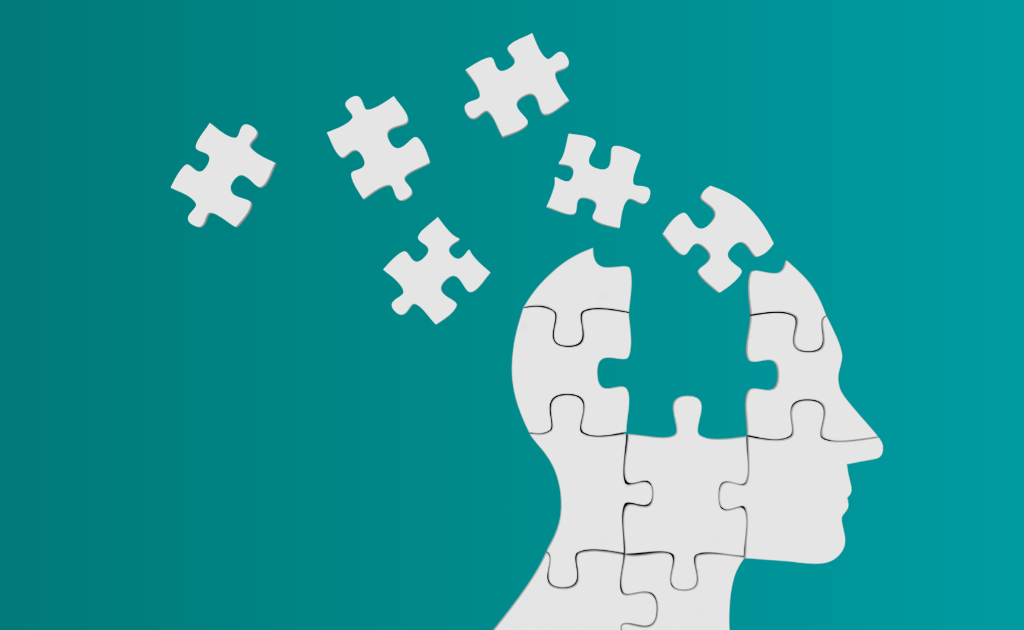
Our bodies change as we age. As we grow older our brains change, and it’s normal for some cognitive functions to weaken with time. It can be disconcerting when our memory starts to fail us more often, so it’s important to understand ‘normal’ forgetfulness and what could be the signs of memory problems.
In this article we will look at the causes of memory loss, the different types of memory loss, the symptoms, causes and the lifestyle changes you can make to improve your memory.

Age is the primary cause for memory loss in the majority of people over the age of 50. However it is important to note there are many factors beyond aging that may cause memory loss. They include, but are not limited to:
Memory decline is a normal part of aging, as you get older you may experience difficulties with your memory and other cognitive skills. Some examples of memory decline that are likely age-associated are:
MCI sits between normal age-associated memory loss, and the symptoms of dementia. MCI is characterised by a decline in memory, and other symptoms such as difficulty speaking, confusion or disorientation. These symptoms will be noticeable to the individual and to the people who know them – but they do not affect someone’s ability to live an independent life or do normal daily activities.
Some people with MCI are at higher risk of developing dementia. Many will remain stable with symptoms not getting worse, and it’s estimated that 1 in 5 will return to normal cognitive functioning for their age eventually. This can be helped with making recommending lifestyle changes.
If you are struggling with age-associated memory decline, MCI, or want to reduce your risk of developing dementia there are some lifestyle changes you can make. Adopting a healthy lifestyle is critical as many dementia risk factors are liked to your physical and mental health.
Exercise or get moving every day:
Many of the risk factors of dementia are directly linked with a lack of physical activity. One of the most important things is to get active, it will reduce your risk of dementia, improve memory, and improve your thinking.
Anything counts, even a short walk. Something you already enjoy can become daily exercise. For example starting to do garden, yard or house work more frequently is a great start.
Stay connected:
Engaging with family, friends and acquaintances has been shown to reduce your risk of developing dementia. Chatting on the phone or via video call is a convenient option too.
Challenge your brain:
Engage your brain every day. This could be through learning new things, solving puzzles, studying a topic, or taking up an instrument. Find something that interests you and is easy to engage with.
Quit smoking:
Quitting smoking, even later in life can lower your risk of dementia, particularly Alzheimer’s disease. It will also improve your overall brain health, memory performance, cognitive efficiency.
Drink less alcohol:
Research into the link between alcohol consumption and dementia have shown that excessive drinking increases a person’s risk of dementia. Very heavy drinking is known to cause Wernicke- Korsakoff Syndrome or alcohol-related ‘dementia’.
Eat a healthy diet:
By eating a healthy diet you can reduce your risk of many conditions related to dementia like high blood pressure, high cholesterol, and type 2 diabetes.
The MIND Diet (Mediterranean-DASH Intervention for Neurodegenerative Delay (MIND) Diet) may reduce your risk of developing Alzheimer’s by as much as 53%. It is a diet focused on healthy fats, omega 3’s, whole grains, fruits, vegetables and low-fat dairy.
Look after your heart:
High blood pressure in midlife is a key risk factor of dementia. Working with your health-care provider to manage your blood pressure and heart health is important. Getting an at home blood pressure monitor is a handy tool to have for this.
Get adequate sleep:
People with sleep disorders such as sleep apnoea or other sleep issues may be at increased risk of dementia. Getting a good night’s sleep is important for cognitive function.
There are a range of vitamins and supplements that are promoted for improving cognitive function and supporting brain health. Some supplements that are promoted for memory function include ginkgo biloba, fish oil, and curcumin. but it is important to remember you will get greater benefits and see more effective results by making the recommended lifestyle changes mentioned earlier in the article.
Short-term memory loss caused by a vitamin B-12 can be treated with a B12 supplement. If you have low levels of B-12 your doctor may prescribe hydroxocobalamin. Typically, this is an intramuscular injection given every 2-3 months.
Further Reading: Healthify, Tips for managing memory loss